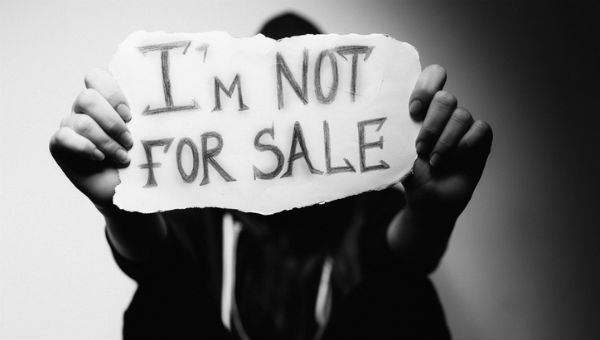By Shivangi Singh, Amity Law School, Lucknow.
Trafficking of persons is a serious crime and a grave violation of human rights. Every year, thousands of men, women and children fall into the hands of traffickers, in their own countries and abroad. Almost every country in the world is affected by trafficking, whether as a country of origin, transit or destination for victims.
Human Trafficking in India
Human trafficking and complex forms of slavery are rampant in many parts of our country. On the false promise of jobs, traffickers kidnap poor women, children and men – mostly belonging to the backward Dalit and tribal communities, from remote villages. Poor people are also kidnaped and brought to urban neighbourhoods as domestic help and sex slaves, through fraudulent recruitment practices, debt bondage, charging of recruitment fees and even through false promises of marriage. In many cases, victims have been paid a loan which they were then required to pay back to the lender, through generations of manual hard work. Modern day slaves are often placed under strict confinement and are forced to work in inhuman conditions. Their movement is monitored and restricted. They are routinely subjected to physical, mental or sexual abuse. This heinous crime is managed by well-organized and trained criminals because of the large amount of profits involved in the same.
Pressing Need of the Hour
Human Trafficking is the third largest organized crime violating basic human rights. In 2014, Gary A Haugan and Victor Boutros, in their much acclaimed treatise The Locus Effect, argue that “beneath the surface of the world’s poorest communities, common violence – like rape, forced labor, illegal detention…has become routine and relentless…There is nothing shielding the poor from violent people… Basic public justice systems in the developing world have descended into a state of utter collapse.” Structural violence also prevents the poor from accessing basic services distributed as part of the welfare measures in these countries.
It is to be further observed that most of the developing countries of the world have absolutely no appropriate system to deal with everyday violence. In these authors’ own words: “…what is the direct solution to violence? In modern societies, it is the law enforcement. That is to say, acts of violence are declared to be against the law and then the State is authorized to use coercive power to enforce the law by restraining and punishing those who commit illegal, violent acts”.
Currently, there is no specific law in our Country to deal with this form of crime. Thanks to the mounting pressure from NGOs, human rights activists and social workers, the Trafficking of Persons (Prevention, Protection and Rehabilitation) Bill, 2018 has been drafted. The Bill addresses one of the most pervasive yet invisible crimes affecting the most vulnerable persons, especially women and children. In hundreds of petitions, a heavy number of recommendations were received by the Ministry of Women & Child Development, which have been incorporated in the Bill.
This Bill is the need of the hour, as it prescribes stringent punishment for promoting and facilitating trafficking of persons. The punishment commended under it ranges from rigorous imprisonment of minimum of 10 years to life imprisonment and a fine not less than Rs. 1 lakh. In order to break the organized nexus, both at the national and international level, it mandates for attachment & forfeiture of property of the wrong-doers.
Challenges
There is a widespread denial of the problem of modern day slavery in India. The government is worried about the implications on the image of the Country. Human rights activists had to pressurize the government to acknowledge the existence of Trafficking in India, as this is an issue which threatens the Country’s development.
A huge challenge for the implementation of this Act will be, dealing with vested interests of the personnel being currently benefited from this abominable atrocity of Human Trafficking. Such people range from being funders of political parties, relatives of bureaucrats and at times, people who do ‘respectable businesses’ and even philanthropic activities. The society needs to be helped by activists and think tanks, to change their perception about bonded labor and human trafficking.
The Way Ahead
India has emerged as a trailblazer among the South Asian countries, to combat a global concern, by addressing the problem “from the point of view of prevention, rescue and rehabilitation”, said the Government. UNODC and SAARC nations are looking forward for India to take lead by enacting this Law. The Bill is a very significant piece of legislation. It is an essential first step and seems to be the correct course of action. The Government should be applauded and supported for enacting this Bill. It will be appropriate to quote Martin Luther King here: “It may be true that law cannot change the heart but it can restrain the heartless. It may be true that the law cannot make a man love me but it can keep him from lynching me and I think that is pretty important.”
As the way ahead, we need to support the Bill to get it passed and to become a Law. Extensive judicial reform and massive police training programs are essential to tackle this heinous crime of human trafficking in a holistic way.

